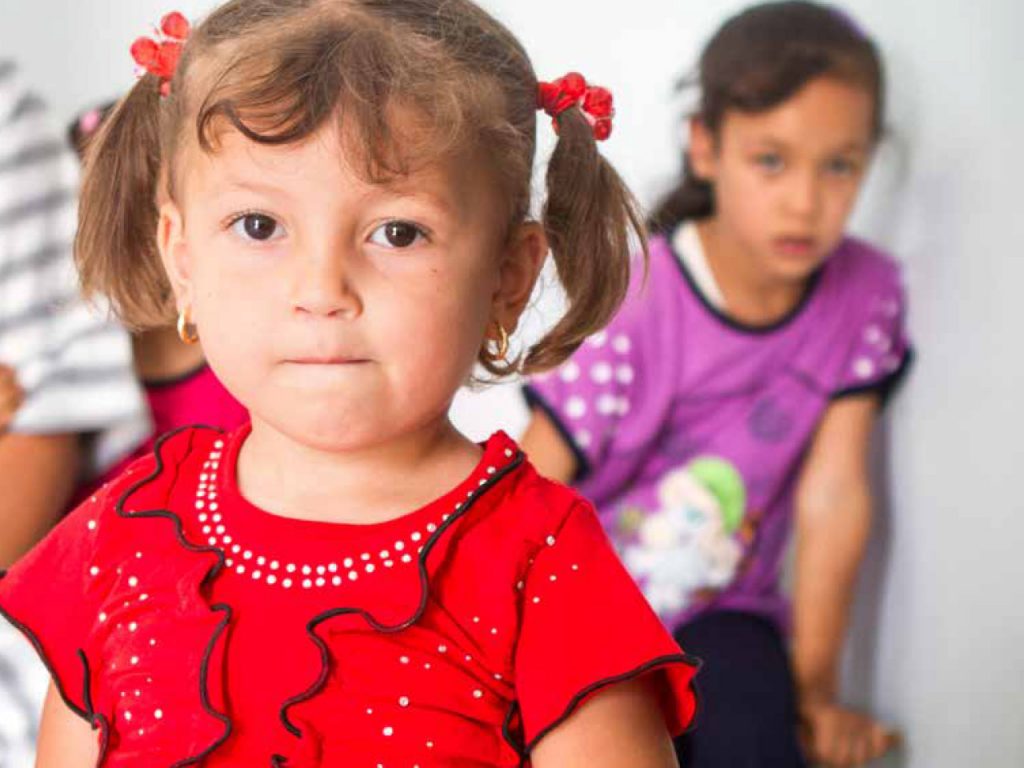
Libya
Shortly after Libya’s civil war began in 2011, International Medical Corps deployed teams to provide countrywide emergency medical services, train health workers and deliver vital medicines and supplies. Starting in the country’s east, we built makeshift health facilities to provide critical care to conflict-affected populations and moved with the front lines westward until the fighting dissipated.
As the situation progressed, we transitioned from emergency activities to programs that fostered recovery and self-reliance, targeting vulnerable populations deprived of access to basic healthcare—including internally displaced people, refugees and the growing number of migrants transiting through the country on their way to Europe. International Medical Corps supported the physical rehabilitation of health clinics, and we continue to provide medical aid to those in urgent need of care while providing a broader range of services that benefit the wider Libyan and non-Libyan populations.

7.3 million
76/80 years
male/female
26 years
The Challenges
Our Response

Healthcare
International Medical Corps operates mobile medical teams (MMTs) that provide vital healthcare services to Libyans and non-Libyans. Our MMTs are supported by community health workers who are critical in raising awareness among migrant and refugee communities about common health problems. The MMTs also organize regular training and on-the-job tutorial sessions for healthcare providers, ensuring the availability and continuity of essential services, particularly in underserved and hard-to-reach areas.
International Medical Corps is committed to strengthening the national healthcare system through our long-term partnership with the MoH. This partnership involves training healthcare workers, providing medications and medical equipment, and rehabilitating healthcare facilities to ensure the sustainability of our efforts.
As part of our response in Kufra, International Medical Corps provides essential healthcare services through MMTs deployed in public health facilities and in informal settlements. We also conduct comprehensive training for national nurses, focusing on clinical skills and service delivery in emergency settings. Additionally, we provide essential medical equipment to public hospitals to strengthen their ability to deliver and sustain basic health services for the refugees and residents of the host community. International Medical Corps co-leads the health task force under the Sudan RRP in Libya.
In addition to the refugee response, our MMTs continued to provide a range of primary and emergency health services to flood-affected communities.

Mental Health and Psychosocial Support (MHPSS)
International Medical Corps provides MHPSS services remotely and in-person through trained doctors who navigate the identification, management and referral of priority mental health conditions in line with World Health Organization guidelines. We also build the capacity of healthcare providers at the primary healthcare level on several mental health topics to ensure that they can provide MHPSS services as part of primary healthcare. Furthermore, to strengthen community-based MHPSS efforts, we train people from different municipalities to facilitate training and awareness sessions that advocate for mental health at the community level.

Violence Against Women and Girls (VAWG)
International Medical Corps implements VAWG prevention and response programs in Libya, supporting vulnerable women and girls through awareness sessions, case management, psychosocial support and skill-building activities. We also collaborate with other organizations, local authorities and service providers to strengthen service delivery and improve access for those in need.
International Medical Corps has collaborated with three national organizations, adapted service delivery within health facilities and extended access to adolescent girls in public schools to address challenges posed by the floods. We also focused on meeting the immediate needs of women and girls affected by the floods by providing tailored psychosocial support services, and conducted regular feedback sessions and focus group discussions to ensure that our response was context-sensitive and community-driven.

Flooding in Libya
On September 10, 2023, Storm Daniel struck northeast Libya, dumping months’ worth of rain in a matter of hours and causing the catastrophic collapse of two dams upstream from the coastal city of Derna. International Medical Corps was quickly able to begin providing health services in Derna after the flooding. International Medical Corps deployed mobile teams to address health, water, sanitation and hygiene (WASH), MHPSS, and other critical needs. We provided primary and emergency healthcare in the affected areas and built the capacity of the national healthcare providers through training programs.
Learn more about our response to the flooding in Libya.

Water, Sanitation and Hygiene (WASH) and Non-food Items (NFI)
Following our emergency WASH-related response in Derna and other flood-affected areas, we shifted our focus to sustainable, capacity-building solutions to support long-term recovery. We strengthened local authorities by providing water treatment chemicals to the General Company for Water and Wastewater. Our team also supplied essential equipment and tools for municipal water system repairs and installed solar-powered water desalination units with storage tanks in the most affected neighborhoods. These interventions have helped to ensure a consistent and reliable supply of safe drinking water for those communities.
Our Impact
Fleeing Conflict, Sudanese Refugees Receive Lifesaving Care in Libya
More than 160,000 Sudanese refugees have settled in Kufra. Our mobile medical teams are there, providing medical and mental health care.
READ MORE

